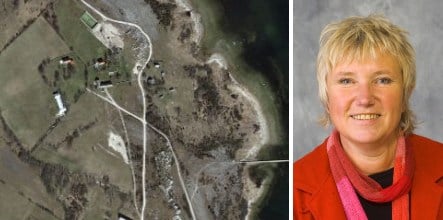SGV, the largest organization representing small and medium-sized businesses in Switzerland, has collected enough signatures to put restrictive national laws designed to protect the countryside to a referendum challenge.
Federal authorities on Wednesday said the group had filed 69,277 valid signatures to challenge changes to the law on town and country planning.
The business group is opposed to amendments to the national planning law adopted by the upper and lower houses of parliament in June.
The changes were passed in the face of an initiative backed by nature groups that sought to freeze the available land for building across Switzerland over a 20-year period.
The initiative also sought a clear separation of zones for development and protected areas.
The legislative changes adopted by parliamentarians don’t go as far, but supporters of the initiative said they would back off on their proposal if voters support them.
The lawmakers’ plan would reduce construction zones to match the needs of the next 15 years and impose a federal tax of 20 percent on any gains in value from property rezoned to allow for construction, with further taxes imposable by the cantons.
The SGV, however, maintains the parliamentarians have gone too far.
On its website, the group said it was opposed to the plan’s requirements to reclassify over-sized building zones and to build within a specified time.
It is also against the proposed capital gains tax on rezonings.
The debate is complicated by the fact that Pro Natura, the group behind the initiative to protect the countryside, is promising to re-introduce it — with a vote necessary 10 months later — if the parliamentary law fails at the polls.
It is the first time that such a “Damocles sword” has been held over a vote on a federal law, Tamedia newspapers reported.


 Please whitelist us to continue reading.
Please whitelist us to continue reading.
Member comments